English Literature
Explore literature from across the globe and throughout the ages, from classic to contemporary.
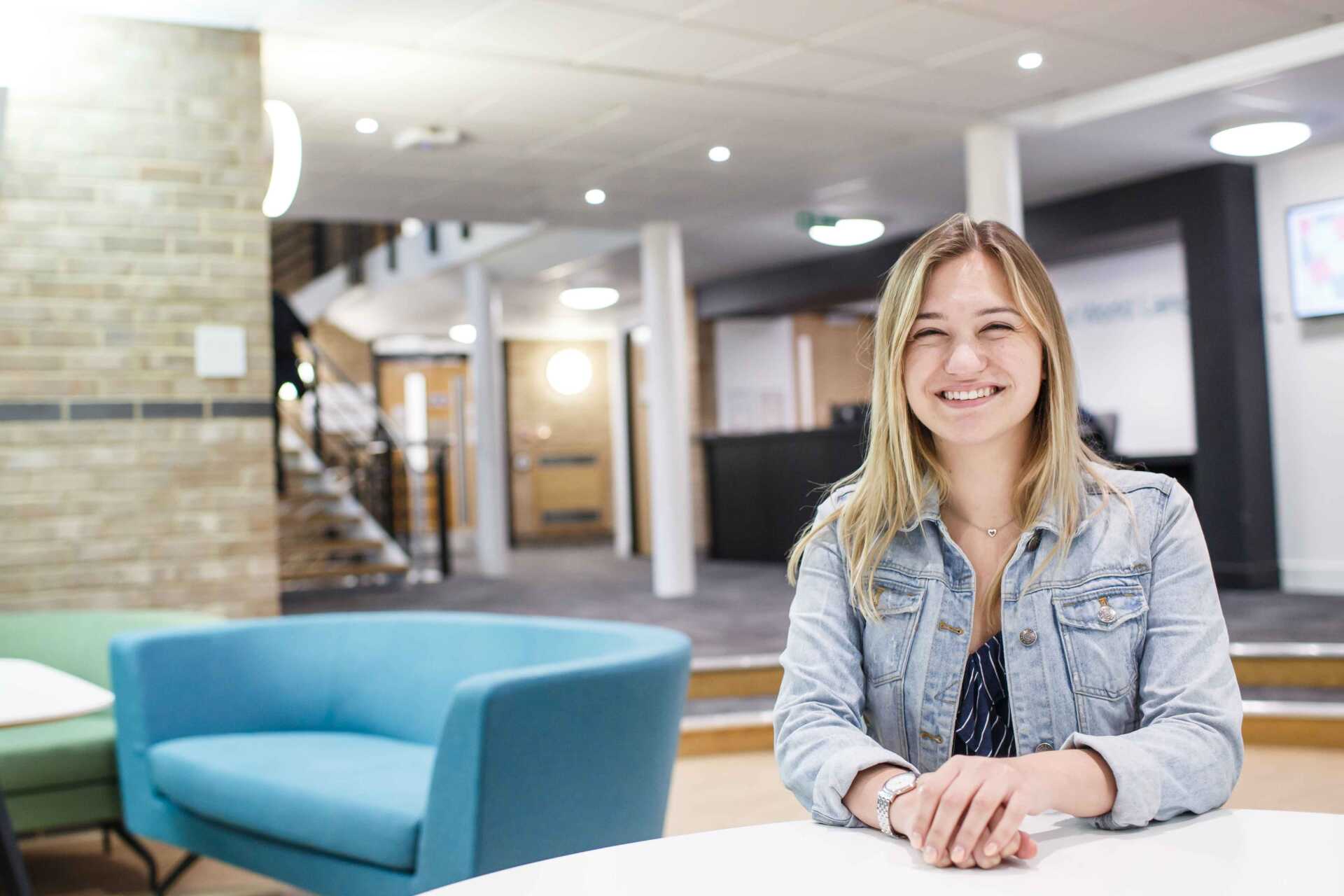
Explore literature from across the globe and throughout the ages, from classic to contemporary.
From the traditional canon to the innovative contemporary novel, our BA English Literature programme empowers you to identify how the world is perceived and informed through literary narratives. We will give you the confidence and support to apply your understanding of literature to today’s world, gaining critical and creative skills that allow you to effect change and shape your own future.
Tailor your studies according to your interests, choosing from a broad range of literary periods, topics, and themes. You can explore the written word across poetry, drama and prose, but also through narrative forms in queer zines; films; artist books; and video games. Your studies will sharpen your critical tools and nourish your unique creativity in a supportive academic environment. Our curriculum is designed set you up for a successful and exciting career across wide range of fields.
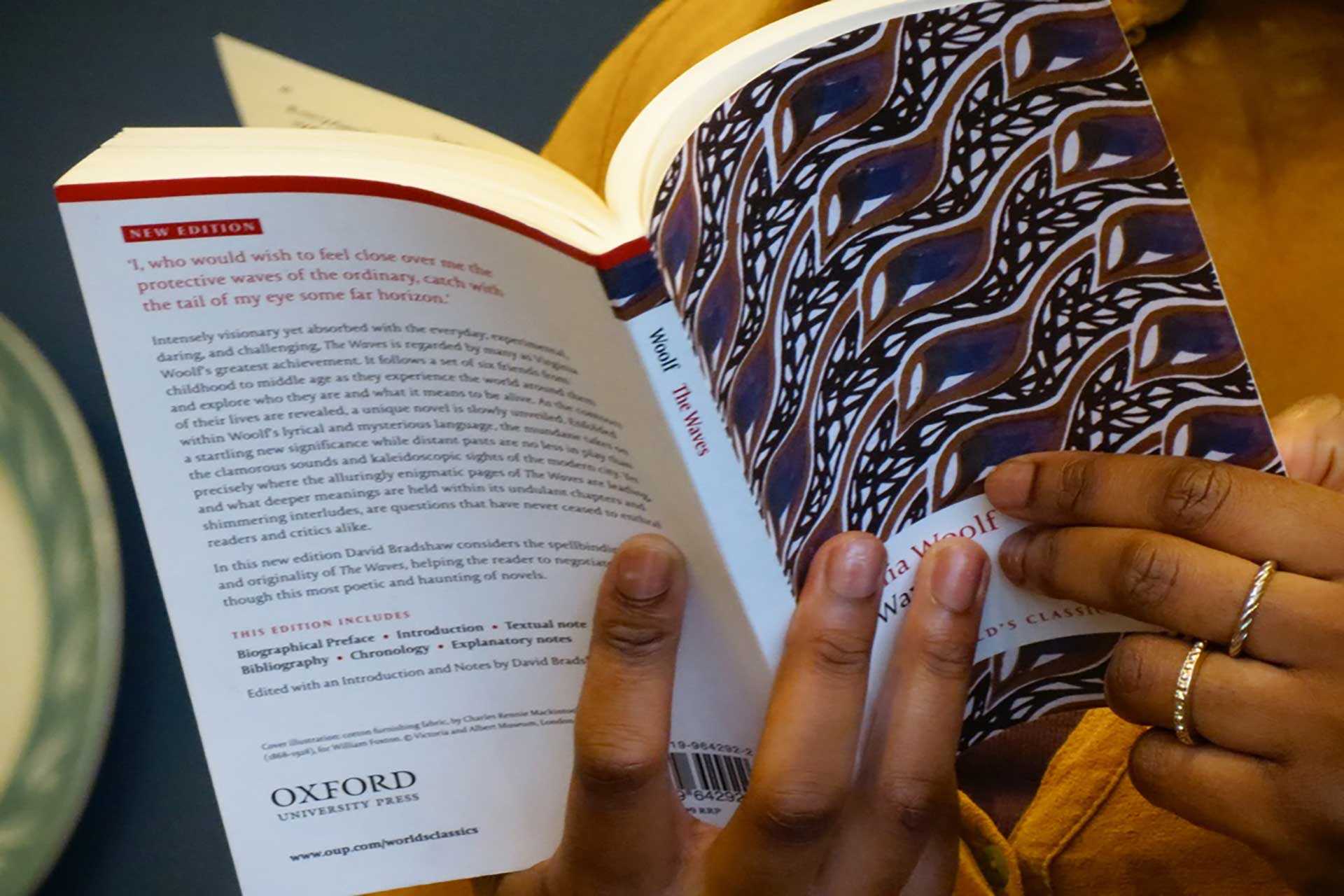
We do not have exams, and our coursework often goes beyond the standard essay or dissertation. This way we assess your best work.
91% of final-year English students were satisfied with the quality of teaching on their course in The Guardian University Guide 2025.
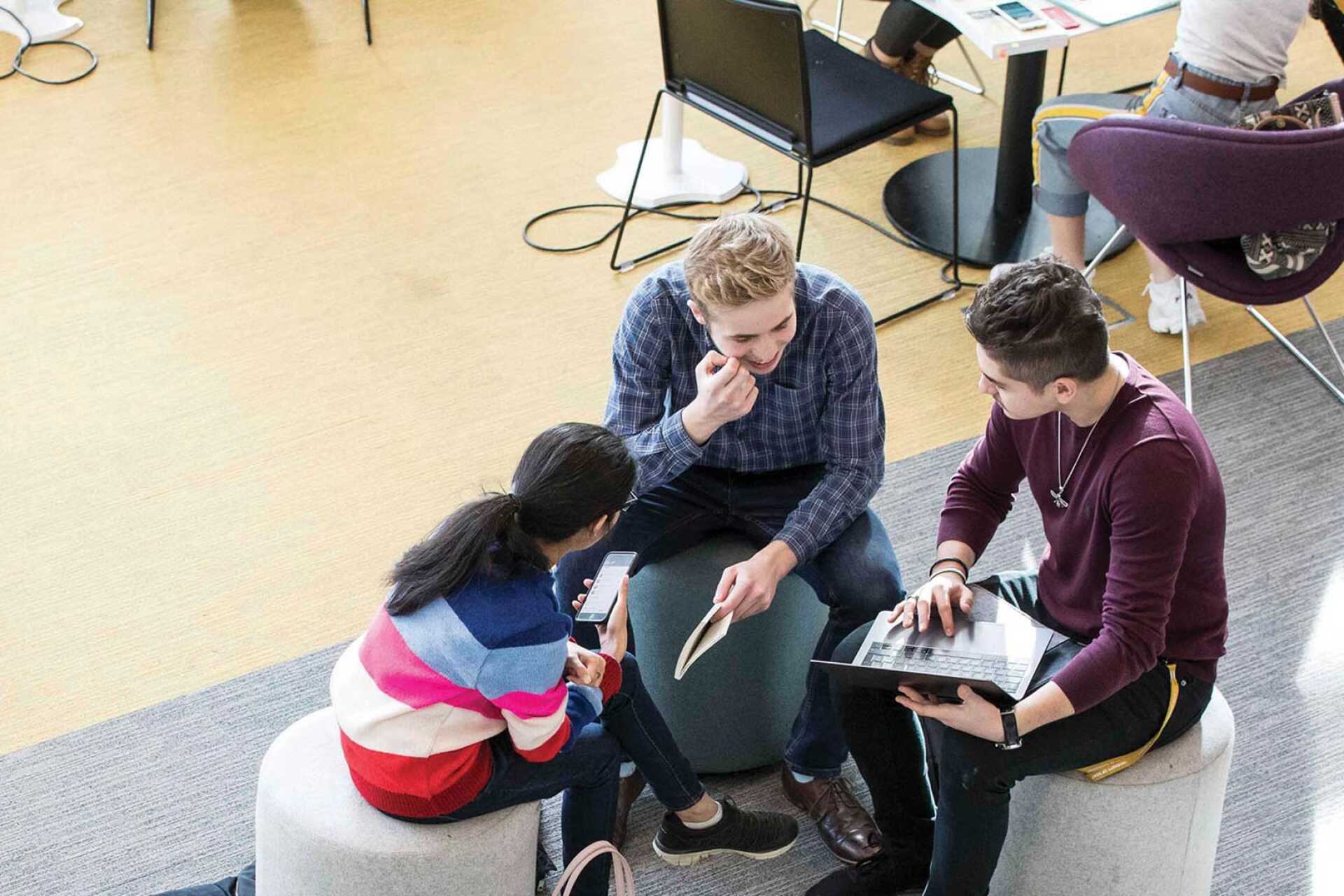
Your English Literature degree will provide you with the key skills for a career in whatever field you want to explore.
Our graduates include authors David Mitchell and Sarah Waters, Nobel-Prize winners, Kazuo Ishiguro and Abdulrazak Gurnah.

"I wouldn't be the person I am today, or have my career, without Kent."
Our typical offer levels are listed below and include indicative contextual offers. If you hold alternative qualifications just get in touch and we'll be glad to discuss these with you.
BBB
The University will consider applicants holding BTEC National Diploma and Extended National Diploma Qualifications (QCF; NQF; OCR) on a case-by-case basis. Please contact us for further advice on your individual circumstances. A typical offer would be DMM.
120 tariff points - typically H5 H6 H6 or equivalent
Pass the University of Kent International Foundation Programme.
The University will consider applicants holding T level qualifications in subjects closely aligned to the course.
Obtain Access to Higher Education Diploma with 45 credits at Level 3 with 24 credits at Distinction and 21 credits at Merit.
The following modules are what students typically study, but this may change year to year in response to new developments and innovations.
How free are writers to make and break literary forms? How do literary forms shape our understanding of selfhood, history, and society? Gain an introduction to the relationship between form and context in literary studies as you explore a rich variety of literary forms from the medieval period down to the present, including poems, plays, novels, and short stories. In lectures and seminars, you will examine how forms produce aesthetic effects and relate to ideologies, with a particular attention to the roles of innovation and adaptation in literary history. TYou'll also gain a thorough grounding in the writing and research skills necessary for studying English literature at university level.
There is another world, which is this world. Dystopias, futures and other forms of speculative writing offer us a new clarity on the some of the most pressing issues we face in our world today. Through examining four thematically structured units over the course of the term, you'll discover how the study of narratives that exist in ‘other worlds’ can offer insightful and nuanced analyses of complex questions involving environmental, political, historical, and/or societal concerns. You'll also consider how these broader contexts and concerns can be utilized to further interrogate the texts tyou read. Generic terms such as ‘dystopian fiction,’ or ‘science fiction’ will be understood both broadly and generatively and your studies will therefore cover both literary and paraliterary examples, as well as works in other media. TYou'll have the opportunity to respond to the other worlds you explore through creative and critical means.
What are the key ideas you need to become a literary critic? What are the different approaches to interpreting a literary text? In this module, students will learn about some of the most important thinkers in the history of literary criticism, understand how their ideas and methods changed the way we study literature, and put them into practice in your own writing. They will study revolutionary ideas about class and capitalism, explore dreams and the unconscious, and discuss landmark texts in the history of thinking about race, gender and sexuality. They will also be guided in developing their own writing skills as a literary critic, learning how to use evidence and judgement to make arguments. By the end of the module they will have the knowledge, understanding and skills they need to embark on your own journey towards becoming a literary critic.
How can nature be invented? Before the Romantic era, writers such as Daniel Defoe talked of the horror, ugliness and ‘unhospitable terror’ of the Lake District. One hundred years later, the reputation of the region had been completely transformed into a place of beauty and contemplation. Discover what happened to the idea of the natural world in the century between Defoe and Wordsworth and how the debates produced during the period are still relevant today. You will examine how the legacy of Romanticism influences our understanding of global warming and climate change, mechanisation, technology and urban living. The poetry, fiction, and essays you encounter will explore how the Romantics saw the newly-emergent natural world as: restorative; political, even revolutionary; the place where our bodies belong; an analogue of the mind; a reminder of who we are as a species and the threat of extinction that results in our forgetting it. By reading Romantic texts in conversation with nature writing and ecological debates of our own time, you'll see that Romanticism is still with us, as are its concerns about the environment.
How do writers emerge from, work within, speak to and challenge their cultural and creative contexts? How do those contexts shape our creative identity and practice? What are the varied professional practices and communities that form part of a critic and/or writer's work?
You'll be introduced to a range of methodologies to help you develop your identity and interests as a writer, be that critical, creative, or a mixture of the two. You'll explore approaches to creating and developing your own writing through conversation and exchange, broadly understood, as a starting point. This will include using research; intertextual practices; collaborative and editorial exercises; interviewing; and reviewing. You will reflect upon and analyse the current literary and publishing landscape, and how your work might respond and enter into it.
Your final portfolio of texts may include a range of forms, such as book reviews, manifestoes, short essays, articles, and your own poetry, fiction or creative non-fiction. You will learn skills that are essential to the work of a professional writer, and begin to situate their own writing in a 'creative commons’ of shared intellectual resource and exchange.
How does class feature in contemporary literature today? How do writers tell their class stories? You'll consider British working-class writing in an environment of global economic crisis, insecurity, and austerity, and the context of the marginalisation of working-class voices. Examine how questions of class belonging, community, and identity shape contemporary culture, and how class interacts with other forms of non-class social exclusions. Developing a critical language to talk about class that speaks to the new realities of global contemporary society, you'll survey the various styles in which contemporary class identifications are made, and the issues tied up with these identifications, from work to community, from place to prejudice.
How does language speak power? How does it speak against it? Consider these questions in relation to the world’s superpower, the US, from the times of the Puritan settlers to the age of Donald Trump. Look at how certain forms of speech, specific rhetorical manoeuvres and particular metaphors have structured power — as well as how they have been mobilised to challenge a status quo. In so doing, you'll be given the necessary tools to understand and critique the aesthetic, political and rhetorical choices of a range of important cultural and political figures including Thomas Jefferson, Martin Luther King and Sylvia Federici. You'll also analyse the social factors that give rise to these texts, surveying a range of key historical events and struggles in US history, from Independence to the Civil Rights Movement, from the Protestant work ethic to the rise of the alt-right.
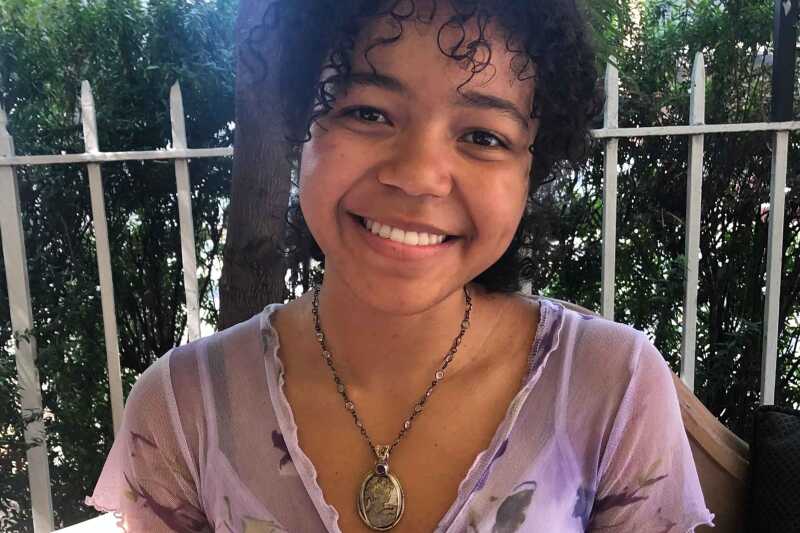
My course exposes me to a variety of texts which ignite my imaginationHyla Etame, English Literature BA
What were the key literary forms developed in premodern English literature? You'll examine key literary texts from around 200 years before the publication of Shakespeare’s sonnets and the performance of his plays, to late in the century of his death, the seventeenth century. You'll explore narrative poetry, from Chaucer’s pioneering Canterbury Tales, to Milton’s Paradise Lost . TYou'll also examine lyric poetry, from the courtly love motifs of the late medieval period into the extraordinary early modern vogue for the sonnet form. We will trace the diversity of premodern drama, from the extraordinary spectacle of community-led cycle plays in cities across England, to the professionalisation of English drama, and the establishment of London theatre. Overall, you'll understand the forms we see in Shakespeare within their deeper temporal and cultural contexts.
How did literature become global? What is the significance of translation to modern literature? You're introduced to selected literary forms and texts from the eighteenth century through to today, focusing on the global origins of the modern world. You'll study the rise of European colonialism and slavery, the impact of wars and decolonisation across the Global South, and the spread of globalisation. Introducing debates surrounding the contested category of ‘world literature’ thinking about issues such as authorship and literary tradition, the migration of peoples and cultures across continents, and how we read texts in translation. Connecting each week is an exploration of how the production, circulation, and consumption of literature is bound up with the social and cultural changes that have shaped the way we live today.
What has it meant to be modern in the United States, and how does literature help us to understand modernity? You will study key texts in US literature from 1930 to the present day, examining what they tell us about the possibilities of literature and the state of America. You will focus in particular on fiction about two great cities of this era – New York and Los Angeles – while also studying examples from other genres such as poetry and non-fiction prose. You’ll consider narratives of movement and displacement from rural to urban spaces in the Great Depression and Great Migration as well as the advent of mass culture in Los Angeles. Examine how extreme wealth inequality is addressed by literary texts, and discuss representations of racial segregation and assess how economic and social shifts in the late-twentieth century have changed urban life and its representation in literature. You’ll develop your understanding of the particular cultural features of New York and Los Angeles through comparison, and achieve a more sophisticated understanding of modern American literature.
What were the texts that forged the US literary tradition? What role did literature play in shaping US national identity in the era of the Civil War and its aftermath? You’ll track the emergence of American literature over a one-hundred-year period, from the tales of Edgar Allan Poe to the publication of F. Scott Fitzgerald’s The Great Gatsby in 1925. You’ll study a series of groundbreaking novels, experimental poems, essays, speeches and tales in order to answer these questions. You will consider the great conflicts that divided American society over slavery, race, class and gender. You will read broadly across the range of American experience, from scenes of war and violence to solitude and contemplation, from the sacred to the profane, and from the American wilderness to its developing cities. The authors you will study cover the spectrum of American society, including early feminists, formerly enslaved people, outsiders, mystics and dandies. You will discover some of the most influential literary texts ever written in English, and arrive at a new understanding of the cultural formation of the modern United States.
What kinds of encounters shaped and characterized literature in English in the pre-modern period? Looking at a range of literary forms, you’ll explore literature composed between c. 1350 and 1700, focusing on the idea of encounter. Encounters include those between peoples and races, individuals and landscapes, political, social and gendered encounters, and encounters with the divine and the supernatural. You will interrogate those moments of contact, of exchange and of challenge, and discover how literature engaged and grappled with the shifting concepts of social, political and cultural power, as well as the dynamics of selfhood, including theories of sexuality, national identity, religion, race and disability. Covering a period of dynamic change in the history of British and world politics, you’ll examines the diverse literary response to these changes and exposes students to the theoretical modes used to analyse them, including postcolonial, material culture, space and place, ecocriticism, gender and critical race theories.
You’ll learn some of the most innovative early-twentieth-century literature including novels that pioneered the 'stream-of-consciousness' technique, experimental modernist poetry, African American modernism, Futurist writing and art. This period is characterised as much by its lively and often strident artistic manifestos as it is by its monumental literary works, and we take a close look at this climate of literary debate in its historical and theoretical context. You’ll analyse modernist form against the background of changing social, sexual and political attitudes and examine the connections with other artistic developments. Focal points include questions of subjectivity, interiority and identity; gender and nation; the modernist work as a collage; the ways in which modernist texts challenge conventions of representation; and the relation between the artwork and its creator.
How did the Victorians use literature to come to terms with the shocks of modernity? To what extent are we still living in a world constructed by the Victorians, and understanding it through the aesthetic forms they developed? You’re introduced to a range of major Victorian texts and literary forms, with a particular emphasis on how they have shaped our contemporary understandings of capitalism, empire, democracy, the modern city, feminism, queer sexualities, evolutionary science, and religious belief. You’ll explore the big, multi-plot realist novel; the modern essay form; the invention of the dramatic monologue; the emergence of the genres of crime and science fiction; and the Victorian revival of fairytales and the Gothic. You’ll also learn current critical debates about Victorian literature and culture and invite them to reflect on the legacies of the Victorian period in contemporary Britain.
What does it mean for literature to be contemporary? What are the concerns of contemporary writing and what interventions does it make in the world today? You’ll gain critical ideas and theoretical concepts that will help you to understand the literature of the twenty-first century. You will be introduced to texts from a range of genres, including fiction, poetry, non-fiction prose and the essay, and encouraged to consider new ideas in contemporary theory and philosophy. Texts will be selected from the US and UK, Syria and continental Europe. The frame for studying them will be international in scope, and students will be encouraged to think about how contemporary concerns such as migration, climate change, economic crisis and global capitalism exceed national borders. You’ll study a range of aesthetic developments and departures, such as the turn to creative non-fiction and the re-emergence of the political essay. Overall, you’ll learn how writers are responding to the present period, how your work illuminates and reflects current cultural concerns.
Before 1660 there was no English novel, and by the end of the eighteenth century there was Jane Austen. How and why did this happen? You’ll learn how such a literary revolution was possible and investigate the rise of professional authorship in an increasingly open marketplace for books. With commercial expansion came experiment and novelty. Genres unheard of in the Renaissance emerged for the first time: they include the periodical essay, autobiography, the oriental tale, amatory fiction, slave narratives and, most remarkably, the modern novel. Ancient modes such as satire, pastoral and romance underwent surprising transformations. Many eighteenth-century men and women felt that they lived in an age of reason and emancipation - although others warned of enlightenment's darker aspect. Seminar reading reflects the fact that an increasing number of women, members of the labouring classes, and enslaved people wrote for publication; that readers themselves became more socially varied; and that Britain was growing to understand itself as an imperial nation within a shifting global context. You’ll reflect, as eighteenth-century writers did, upon the literary, cultural and political implications of these developments.
The year in industry takes place between your second and final year. It is a great opportunity to gain workplace experience, increase your professional contacts and acquire new skills, and is a valuable addition to your CV.
You can take the year in industry in the UK or abroad with a wide range of employers in areas including the arts, education and cultural heritage. While you are responsible for finding your placement, we offer support and guidance through the application process.
Tuition fees for the placement year are greatly reduced and employers may offer expenses or a salary.
The year in industry is assessed on a pass/fail basis and does not count towards your final degree classification.
What could you do in a year?My year in industry couldn’t have gone better. I secured a role at IBM, working in their sports and entertainment department – it was perfect for meTom Tillin Find out more
Going abroad as part of your degree is an amazing experience and a chance to develop personally, academically and professionally. You experience a different culture, gain a new academic perspective, establish international contacts and enhance your employability.
You are expected to adhere to any academic progression requirements in Stages 1 and 2 to proceed to the year abroad. If the requirement is not met, you will be transferred to the equivalent three-year programme. The year abroad is assessed on a pass/fail basis and will not count towards your final degree classification.
For further information, please see Go Abroad.
Where could you go in a year?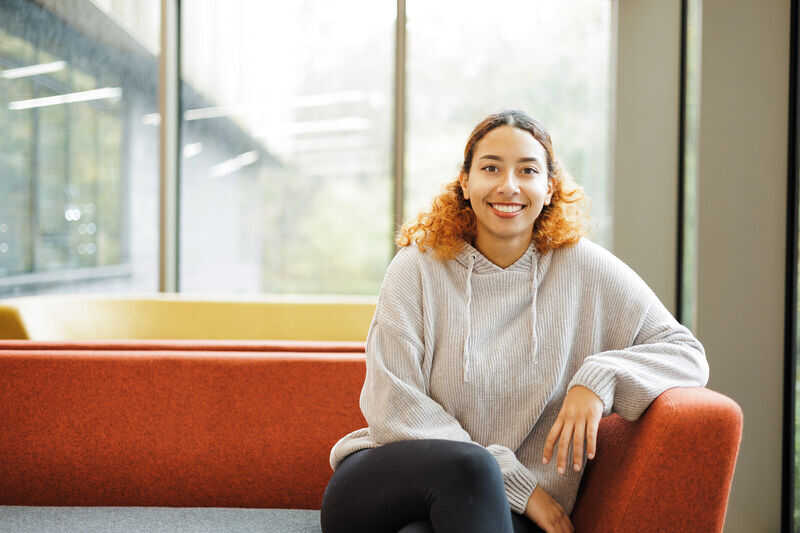
My ‘You only live once’ decision to study in Japan is one of the best I’ve ever made. I had a fantastic year.Cheyenne Nolan Find out more
Have you ever wanted to research a subject in depth and change the way we look at an issue through literature? Write your own novel or poetry collection? Across two terms, you'll create a guided independent project exploring your personal and/or professional interests.
You'll take a guided strand relevant to your chosen project and complete your course having created piece of work that can exist independently. You could be guided to make and publish your own book, to write your own dissertation on a topic of your choice, or write a new portfolio of creative texts. You'll explore your own subject matter, develop your independent research skills, enhance your creative/critical skills and lay claim to an area of study in your chosen form.
You'll write a proposal for your project and are assigned a supervisor accordingly. Feasible project proposals depend on being able to match projects with an appropriate supervisor, so may shift in scope from year to year depending on staff availability. Yuu'll be led through the development of your project by a combination of one-to-one supervisions, and a series of lectures and workshops designed to hone the ideas and skills you need to fulfil your project. During the development of the project, you will submit plans and literature reviews and offer a presentation on your work as it progresses.
The Project presents a chance to devote a sustained period of time to an area for which you feel enthusiasm, curiosity, and passion. The focus is an in-depth scrutiny of a subject through primary and secondary research and writing and compositional processes.
In this capstone module, you work as a literary critic or a professional writer to put the research skills and training developed earlier in your degree into practice. The Project will also help foster transferable skills such as: organisation; independence; and project-management.
Consider women as writers, readers and the subjects of literature as the focus is put on literature written by, for and about medieval women.
You’ll see women as the consumers, compilers and scribes of books as well as the protagonists and antagonists in a variety of literary and artistic forms produced in England and Europe during the late-medieval period.
Explore how literature reflected, and helped to construct and constrain, women’s lives, bodies, sexualities, identities and experiences, and the avenues through which they expressed their thoughts, desires and fears. You’ll examine a range of material, including lyrics and romances, devotional manuals, saints lives, plays, letters, conduct books, sculptures, iconography and the everyday objects owned by women. In doing so, you’ll encounter women as they were and how they were supposed to be, you’ll read accounts of female friendship and same-sex desire and discover women’s diverse roles in society and in the home. You’ll see how women’s bodies and relationships were used in polemic and political discourse, analyse their influence on prominent male writers of the period and evaluate the construction and erasure of late-medieval women’s voices in the historiography of later ages.
How has American crime fiction evolved from its beginnings in the nineteenth century to become one of the most important and popular genres of literature today? You’ll trace the story of crime fiction in the United States from the gruesome tales of Edgar Allan Poe to the contemporary moment. You’ll study fiction as a principal object but also discussing film and television. Along the way, we will discuss the conventions of the whodunnit, the emergence of hard-boiled fiction in the pulp magazines of the interwar period, and the flowering after World War Two of Black, queer and feminist approaches to the genre. You’ll consider what drives the evolution of mass genres, how they are related to their historical contexts, and how to describe and analyse their particular narrative forms. You’ll leave with a broad knowledge of American crime fiction across periods and a deep understanding of its perennial appeal.
What is the relationship between 'animal' and ‘human’, and how is this explored through writing? You’ll examine creaturely relations by focusing on the representations of animals in literature, alongside key theoretical and contextual material that engages with questions concerning animality and humanity. Focus on how writers imagine distinct animal worlds as well as how they understand the role of animals in human cultures. Using a range of novels, short stories and poems you’ll consider questions about how we look at, think with, and try to give voice to animals. You’ll gain a firm grounding in the diverse critical field known as ‘animal studies’, whilst also considering the broader cultural, philosophical and ethical implications of how we think about the relationship between humans and animals.
While the so-called 'Brontë myth' remains potent in popular culture today, the lives-and-works model associated with it continues to encourage readers to seek partially concealed Brontë sisters in their fictions. You’ll study the rich literary contribution made by the sisters through an intensive focus on their novels and some poetry in the context of Victorian debates about gender and the woman question, beginning and ending with the problematic of mythmaking. Delve into the Brontë myth, examining the ways in which the sisters’ novels and poems challenge established Victorian cultural norms. You’ll be taught to analyse narrative techniques, genre variations, and socio-political themes prevalent in the Brontës' works, as well as examining post-colonial reinterpretations of the sisters’ works on page and stage.
How are modernist and postcolonial literatures related? Studying wide-ranging comparative issues you’ll approaches this question by examining their shared interest in the idea of the quest. You’ll discover how the modernist and postcolonial subject embarks on odysseys in quest of origin, language and identity. Examine how modernist experimentation with form reflects the ever-changing data of modern consciousness and evidences the ‘sickness’ of modernity, and ask how postcolonial quest literature dismantles the binaries and power hierarchies within language as a counteraction to imperialist discourse. You’ll study modernist grail quests for an effective medium of communication, existentialist quests in a modern world in crisis, experimental postcolonial quests into the unknown and poetic quests crossing thresholds of meaning. Primary texts will be read alongside recent critical work from a variety of mythological, philosophical, anthropological and theoretical perspectives.
How has the process of growing up been represented in literature? Why is the coming-of-age narrative such a popular genre, especially among writers that explore ethnic and diasporic identities? Focus on twentieth century and contemporary coming-of-age narratives from the United States, the Caribbean, Asia and Europe. You’ll examine the form and function of these narratives in their cultural and political contexts and in relation to the conventions of the novel of individual development (Bildungsroman). Consider how racial and ethnic identity, migration, trauma, gender and sexuality shape these stories of growing up. Along the way you will be exposed to coming-of-age writing in literary forms such as autobiography, young adult fiction and graphic novel, and consider the genre in relation to film and film adaptation. You’ll gain a broad knowledge of coming-of-age narratives and a deep understanding of the genre’s enduring appeal in a cross-cultural context.
British colonialism changed the world, but it also changed Britain. How did writers of prose and poetry from across Britain, Ireland, the Caribbean, Africa, and Asia represent the consequences of imperial decline for British society and culture? Beginning in the midst of the ‘end of empire’ and ending in the world in which we find ourselves today, you’ll explore how writers such as Bernadine Evaristo, Sam Selvon, Irvine Welsh, Abdulrazak Gurnah, and Kamila Shamsie depict such varied themes as: nostalgia for empire, racism towards migrants, their descendants, and people seeking asylum in the UK, and the impacts of the ‘War on Terror’. You’ll also explore how literature can bring the category of ‘British’ into question and enunciate new forms of commonality that actively reject harmful and exclusionary imperial myths about racial, cultural, and national difference.
From ancient Greece and Rome to anti-colonial movements and Black Lives Matter, progressive social movements have been at the forefront of social change. You’ll be introduced to complex relationships between theories of activism and activism itself, from antiquity to the present day. Focus on how such theories underscore, articulate and create activism while simultaneously being transformed by it. Centred primarily on canonical texts and contexts in the field (e.g. critiques of populism, liberation movements, mass mobilisation movements around key issues such as labour, human rights and political action, and theories of collective action) you’ll discover the theory and practice of activism across time, place, and culture into conversation. Together we’ll explore the roles that philosophy, imagination, moral conviction, and rhetoric play in understanding and motivating a variety of activisms.
Examine the relationship between global capitalism and the novel since the 1980s.
Discussion will focuses on the importance of money and social class in understanding modern post-colonial literature. It shows how a lively global realism has developed, reflecting the new urban realities of large-scale migration from rural areas to cities, the growth of slums, and increasing class inequalities in the global South. You’ll explore how neoliberal globalisation, or the integration of the world’s economies, both makes possible and is critiqued by new realist narratives of abjection and resistance from across the global South, especially from India, Nigeria, South Africa, Martinique, Chile, and Egypt.
After World War Two, a distinctive set of avant-garde traditions emerged in New York City to reshape poetry, art, fiction and music. You’ll explore and come to understand the extraordinary innovations and experiments undertaken during this period. Abstract Expressionist painting, early Punk, the New School of poetry and postmodernist fiction will be discussed with emphasis on the interconnection of the arts. You’ll be encouraged to situate the New York scenes in relation to earlier and later iterations of avant-garde practice, from the European modernisms of the pre-war period to contemporary arts. You’ll consider the distinctive importance of places and institutions in the development of artistic work and relate the evolution of creative work to the evolution of the city in its particular historical contexts. You’ll leave with a systematic understanding of the New York avant-gardes and a comprehensive grasp of their importance.
Medieval literature, in all its generic diversity, from fantastical Saints’ lives, though moral tales and knightly chivalric romance is absolutely absorbed with representing what would now be called the paranormal. From the people-guzzling monsters in Beowulf, the most ancient narrative poem now known in the English Language, to the demonic forces of the era’s drama, medieval literature frequently introduces matter that authors tag as ‘marvels’. You’ll explore how medieval audiences valued such stories, as representing actual entities beyond a materialist rational experience, conveying moral principles effectively, and offering great entertainment. The marvellous elements of medieval literature frequently find their ways into modern adaptations in multiple media, from the magic and dragons in Game of Thrones to the depictions of magic and monsters in a plethora of medievalist films and cast throughout gaming culture.
You’ll be introduced to a range of paranormal encounters in medieval literature, from the early medieval period through to the late Middle Ages, using translated versions of the earliest and most linguistically difficult texts. There will be room for reflection on the adaptation of medieval paranormal fictions into modern contexts.
This module will introduce students to a range of paranormal encounters in medieval literature, from the early medieval period through to the late Middle Ages, using translated versions of the earliest and most linguistically difficult texts. The module will also allow for reflection on the adaptation of medieval paranormal fictions into modern contexts.
Christopher Marlowe and William Shakespeare were born only a couple of months apart in early 1564. Marlowe, from the cathedral city of Canterbury, was educated at the local King’s School and Corpus Christi College, Cambridge, before making his name in London’s theatrical scene in 1587. Shakespeare, from the market town of Stratford-upon-Avon, likely ended his formal education at his local Grammar School, and, having married and begun a family, made his way to London by around 1588. In their early careers, both wrote sensational dramatic fare that helped popularise cultural entertainment at London’s commercial playhouses. In 1590, it is thought that the two authors collaborated in writing a series of plays about The Wars of the Roses. You’ll have the opportunity to analyse works by both authors, thinking about how the poet-dramatists responded to each other’s writing. You’ll shed light on the theatrical scene they established themselves within, the opportunities and challenges that scene presented, and their respective roles in contributing to the light entertainment industry of that time. Through consideration of the communities and spaces in which these authors were a part, you’ll explore the relationship between status, place, and writing.
There has never been a better time to explore the ways in which literary and cultural texts frame and represent mental health and mental distress. Respond to, and reflect upon, these representations and the broader social ideas they reveal as you draw on critical texts from the academic discipline of Mad Studies, alongside prose memoirs, lyric essays, poetry, film, and image. You’ll explore, critically examine, and creatively respond to the various thematic lenses through which mental health and mental distress have been (and are) represented. Discover approaches to neurodiversity and neurodivergence, historical perceptions of madness, gendered perceptions of mental distress, mental health and critical race perspectives, interconnections between Mad Studies and Queer Theory, the role of society in isolation, horror tropes of mental distress, and radical ideas surrounding self-care. You’ll gain the necessary tools required to discuss issues of mental health and mental distress critically and with understanding, as well as having the opportunity to explore and reflect on these issues creatively in a range of forms.
Ever wondered what it would be like to spend months on the road, crossing borders and sailing seas? You’ll be taken on that journey, through twentieth century and contemporary prose, poetry, film, dance, and music, which capture understudied places, people and cultures of the world. Moving between England, Africa, the East Mediterranean/Middle East, the Caribbean, Asia, Europe and beyond, we will experience narratives about and/or by displaced and dislocated people – travelers, tourists, migrants, refugees, exiles, stateless, scattered communities – as shaped by key modern historical, political, and national processes. Here we will see war, conflict and colonialism, feel trauma and hostility, and live in transit sites without rights – airports, border towns, refugee camps, prisons, the buffer zone. You’ll access a range of creative works and humanitarian projects engaged in processes of solidarity, rescue, hospitality and taking responsibility for people who are destined to keep moving through places and borders of the world. From arrival and dislocation, belonging and longing, to national movements and political realities, you’ll study the connections between places, journeys, borders within creative and critical works.
Queer literature provides a valuable space for examining and shaping personal identities. In the emerging genre of 'coming out' stories, as well as in narratives about personal and systemic oppression and stories of resistance, queer writers in Britain and beyond have frequently used literature to respond to the widespread stigma that marginalizes them and their communities. Examining a broad range of LGBTQ writing , you’ll fully explore the unique place that literature and art maintain in the formation of LGBTQ+ political identities, cultures, pasts and futures. You’ll be encouraged to consider how queerness—specifically in Britain and Ireland—intersects with categories such as class, race, nationality and others.
World War Two was the most destructive global conflict in history. Existing social structures were disrupted on a vast scale, creating extreme conditions for huge swathes of the world’s population, unleashing new technologies of violence, and testing the limits of human tolerance.
How can such difficult and uncomfortable aspects of human experience be represented? Consider World War Two as a crisis for representation itself, asking how different forms, genres and media attempted (and sometimes failed) to engage with, register, and respond to the worlds and experiences the war created.
You’ll study a range of representations, including fiction and poetry, journalism, photography, painting and film from a variety of global locations and analyse representations of combat, nuclear warfare and the holocaust, as well as everyday life, interpersonal relationships and desires. Close attention will be paid both to the historical dimensions of the war and to the particular formal qualities of different representations. You’ll gain a broad knowledge of the variety of artistic and intellectual responses to the war, and a sophisticated understanding of how different methods of representation emerge from and shape human experience.
This module explores the ways in which Shakespeare’s plays and Shakespeare as a cultural icon function within historic and contemporary racial politics. It examines intercultural appropriations of Shakespeare on stage and film and their racial and cultural meanings. We will draw on critical race theory, postcolonial theory and contemporary performance studies in order to analyse Shakespeare’s plays on page and stage. In doing so, we seek to identify the role that Shakespeare and his plays have in historic racial politics, global, colonial and postcolonial histories, as well as contemporary discussions (often seen in Twitter hashtags such as #ShakeRace, #RaceB4Race and #BLM). This module will leave you with a broad knowledge of Shakespeare’s racial politics in his own period, as well as the way the racial meanings and representations have evolved over the playwright’s afterlife.
Have you ever thought about how the world might end? In our era of climate catastrophe, extinction, and political crisis, our collective imaginations can often seem overwhelmed with visions of apocalyptic ends and what comes after.
You’ll be guided through a series of contemporary examples from fields including literature, film, television, and video games and will gain a deep understanding of how diverse forms of media have considered the end of the world. You’ll use these speculative writings as a tool of social criticism that addresses our current moment in time. You’ll learn about the ways in which contemporary literature and culture can help us to better understand the emotional content of our apocalyptic fantasies, as expressed through feelings like ecological anxiety, solastagia, and exhaustion. You’ll gain a broad knowledge of how the end of the world is presented across a range of media, as well as a deeper understanding our fundamental human feelings: what we feel, how we feel, and why.
How has the Gothic retained its grasp on the literary imagination for over 250 years, remaining relevant and recognisable while undergoing a series of exhumations?
Explore the Gothic from its origins through various resurgences to its present-day incarnations. Through seminars we’ll discuss the birth of Gothic conventions such as threatened heroines, hauntings and transgressions and consider how tropes are reworked in key literary and historical moments in the genre’s development. You’ll think about how social, political and cultural contexts inform the Gothic’s various concerns about gender, sexuality, race, class and the law and how to use a range of theoretical lenses to analyse the texts. Consider how adaptations across film and television contribute to the Gothic’s capacity for laying bare contemporary concerns such as marginalisation, queer identities, the body and immigration. You’ll gain a deep understanding of the ongoing significance of the Gothic as an evolving fictional form and a broad knowledge of its functions across periods and geographies as a vehicle for political and social critiques.
How have love, desire and intimacy been articulated in the English lyrical tradition and in Western philosophy’s various theories of love? From Wyatt and Shakespeare, to present day expressions of homosexual love and the rise of the popular love song where artists like Taylor Swift explore themes of infatuation, heartbreak, and personal growth. Poets are studied alongside philosophers such as Plato, Roland Barthes, and Judith Butler to ask broader questions about the nature of love and its relation to language. We explore the possible ways in which poetry both establishes and challenges dominant modes of love, how lovers interact with their social environment through poetry, and ultimately how the imagination is at the centre of how we express and explain the attraction, attachment and loss.
What kind of literature did first-wave feminism produce? How did the late nineteenth- and early twentieth-century struggle for women’s rights articulate itself in novels, poems, plays, polemics, and memoirs? Your focus will be British and American literature in the period between 1880 and 1920, as you explore the emergence of ‘The New Woman’: a cultural stereotype and literary character who embodied the era’s dreams and anxieties about the possibilities of feminism. Associated reading will engage you with some of the major concerns of New Woman writing: sexuality, marriage, and motherhood; suffrage and liberalism; race, eugenics, and empire; education and labour; class and economic inequality. At the same time, you consider how feminism drove literary experiment and shaped the transition from Victorian to modernist literature. You’ll conclude by exploring the contemporary afterlives of the New Woman in a contemporary historical fiction and other works of imaginative history.
How do writers tackle topics that are not always easy to put into words? We’ll explore forms of non-fiction that create space for writers to talk about the things that matter to them, including essays and lyrics essays, autobiography and hybrid memoir, autofiction and auto-theory. You’ll learn how to write in one of these forms and reflect on the ethics and politics of writing from and about real life that can be difficult to articulate. Alongside this you’ll consider the unconscious and the limits of language by discussing archives, desire and the hauntological. You’ll try different methods of writing practice related to discovering alternative ways of knowing, leaving the door open to the ambiguous and the paradoxical in order to investigate how to go about finding those things the nature of which is totally unknown to us.
Learn how Woolf reimagines the novel form to encompass experimental narrative styles, hybrid genres and radical thematic concerns. You’ll consider the various historical, artistic, cultural and political contexts that influenced Woolf’s writing, and to which her novels responded. You’ll be introduced to the key critical debates on Woolf and modernism, featuring discussion of topics as diverse as feminism, visual art, the everyday, war, sexuality, gender, class, empire, science, the environment and animality. With Woolf as its central focus, we’ll seeks to understand the lasting significance of the modernist novels of one of the most important writers of the twentieth century.
Teaching and assessment can vary between modules. All modules are taught by weekly seminars. In addition to seminars, the majority of literature modules also include a weekly lecture. Attendance at seminars is required, and for the majority of modules, you are assessed on your seminar contribution/performance.
For a student studying full time, each academic year of the programme will comprise 1200 learning hours which include both direct contact hours and private study hours. The precise breakdown of hours will be subject dependent and will vary according to modules.
Methods of assessment will vary according to subject specialism and individual modules.
Please refer to the individual module details under Course Structure.
For course aims and learning outcomes please see the course specification.
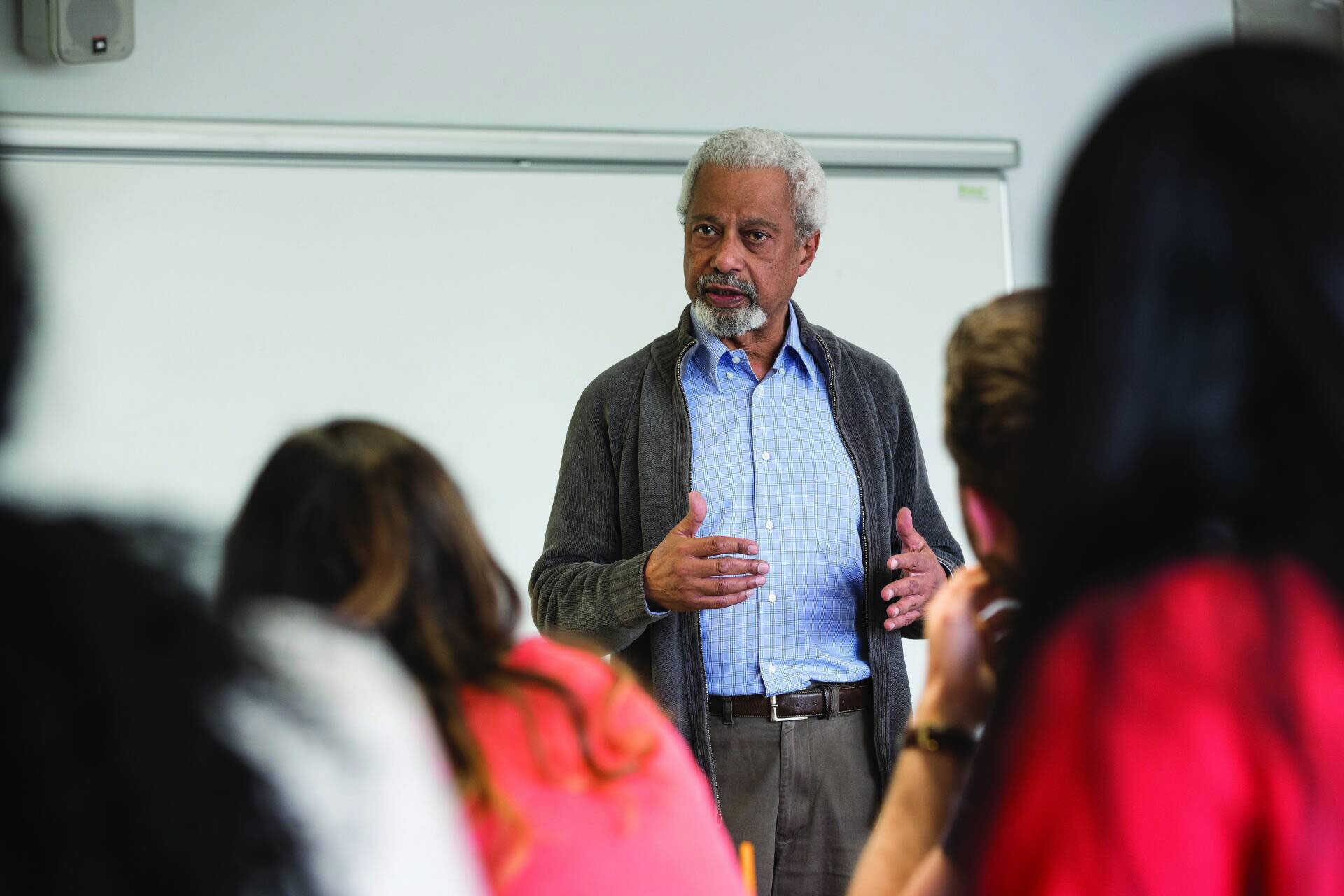
Whether you have a specific career in mind or haven’t thought beyond university, our courses embed employability at every turn with modules that focus on careers in growing and emerging sectors; we’ll demonstrate how your degree can give you options in the creative industries and beyond.
We help you plan for success. Through our varied range of assessments and inspirational teaching, you will hone the digital, critical thinking, communication and leadership skills that are essential for a successful career and realising your ambition.
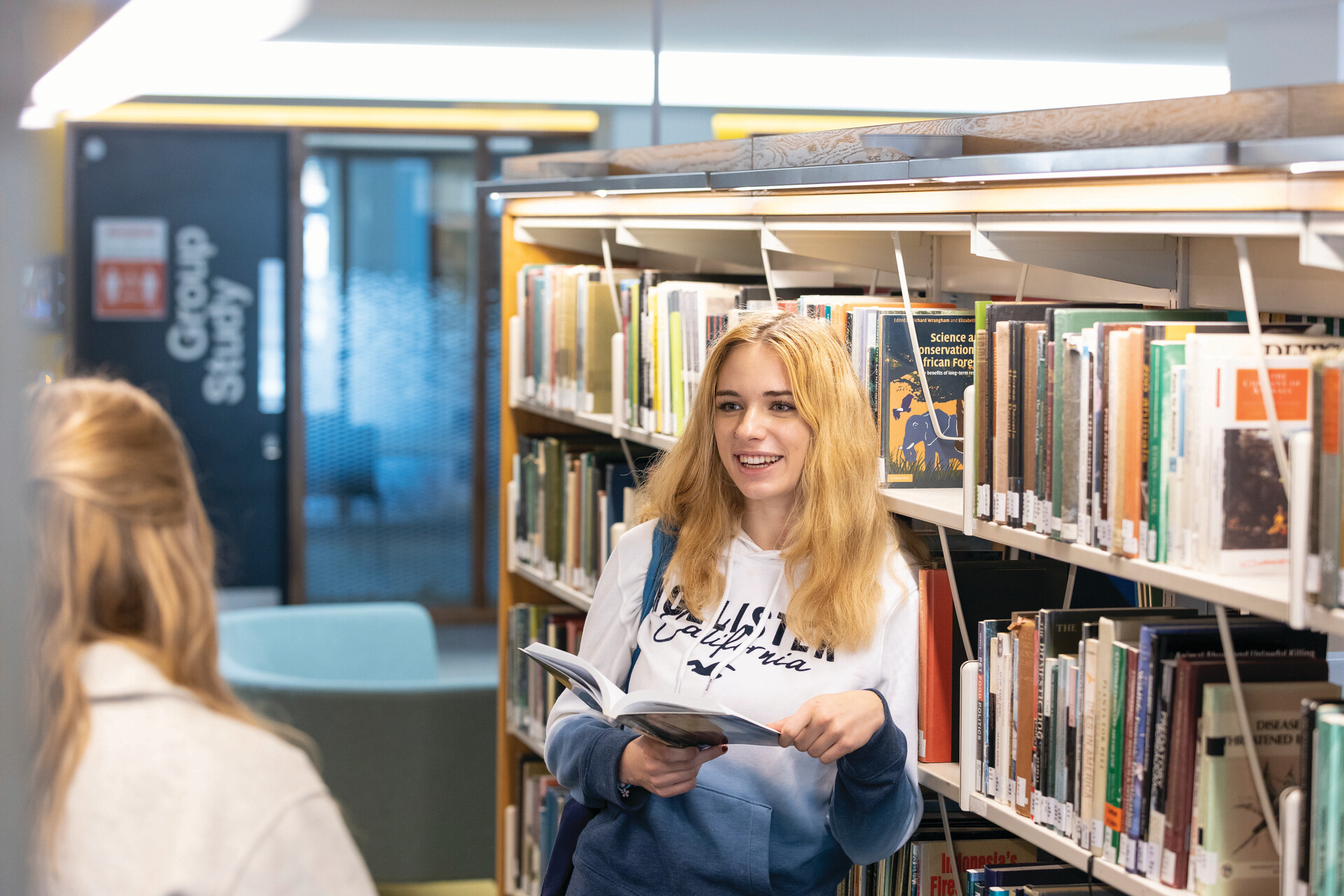
I liked the range of the literature we studied at Kent – the fact that we looked at all sorts of genres, from all sorts of periods.
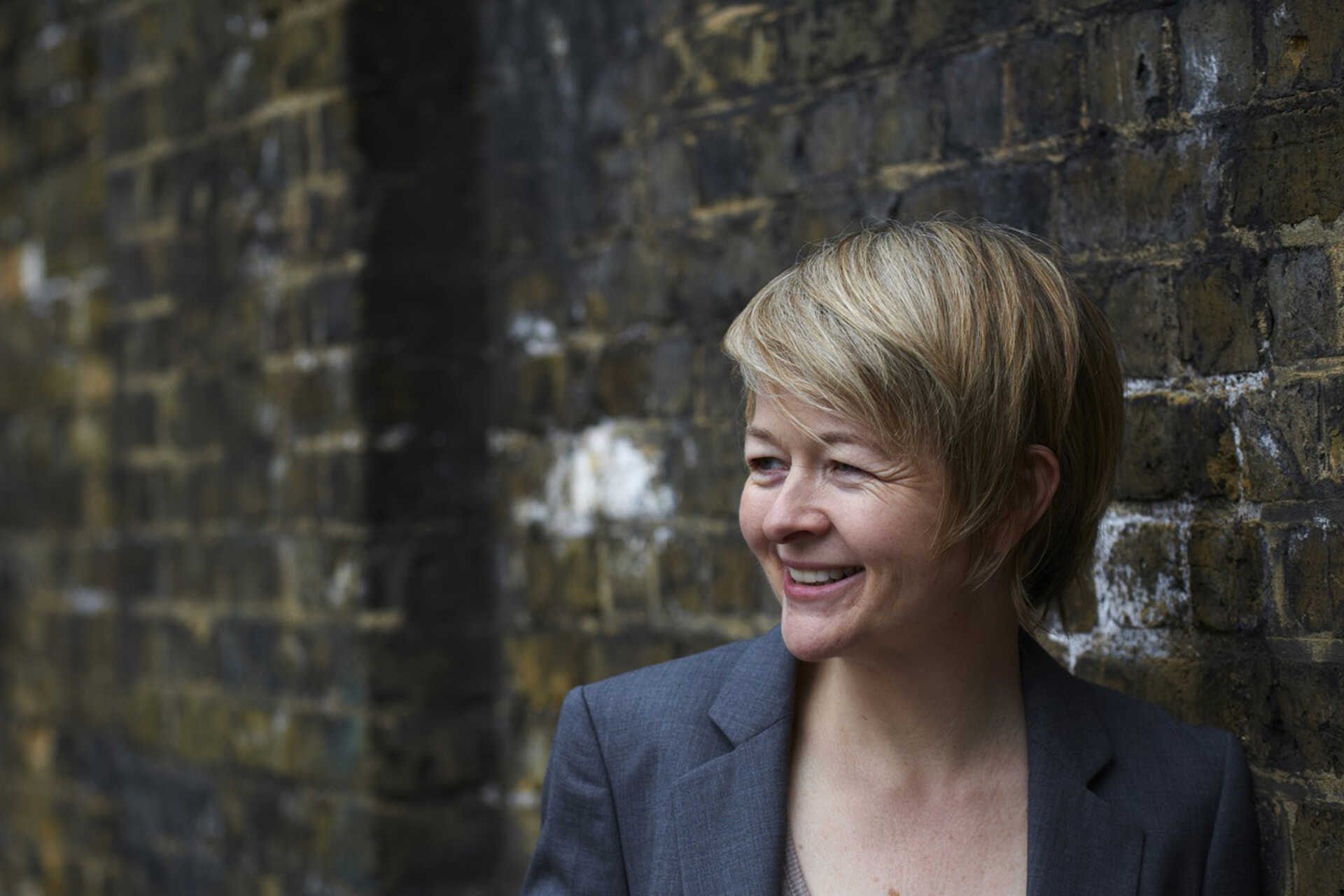
*The Government announced on 4 November 2024 that tuition fees in England for Home students will increase to £9,535 from £9,250 for the academic year 2025/26. This increase requires Parliamentary approval, which is expected to be given in early/mid 2025.
Tuition fees may be increased in the second and subsequent years of your course. Detailed information on possible future increases in tuition fees is contained in the Tuition Fees Increase Policy.
The University will assess your fee status as part of the application process. If you are uncertain about your fee status you may wish to seek advice from UKCISA before applying.
For details of when and how to pay fees and charges, please see our Student Finance Guide.
Fees for undergraduate students are £1,900.
Fees for undergraduate students are £1,430.
Students studying abroad for less than one academic year will pay full fees according to their fee status.
You will require regular access to a desktop computer/laptop with an internet connection to use the University of Kent’s online resources and systems. Please see information about the minimum computer requirements for study.
Find out more about accommodation and living costs, plus general additional costs that you may pay when studying at Kent.
Kent offers generous financial support schemes to assist eligible undergraduate students during their studies. See our funding page for more details.
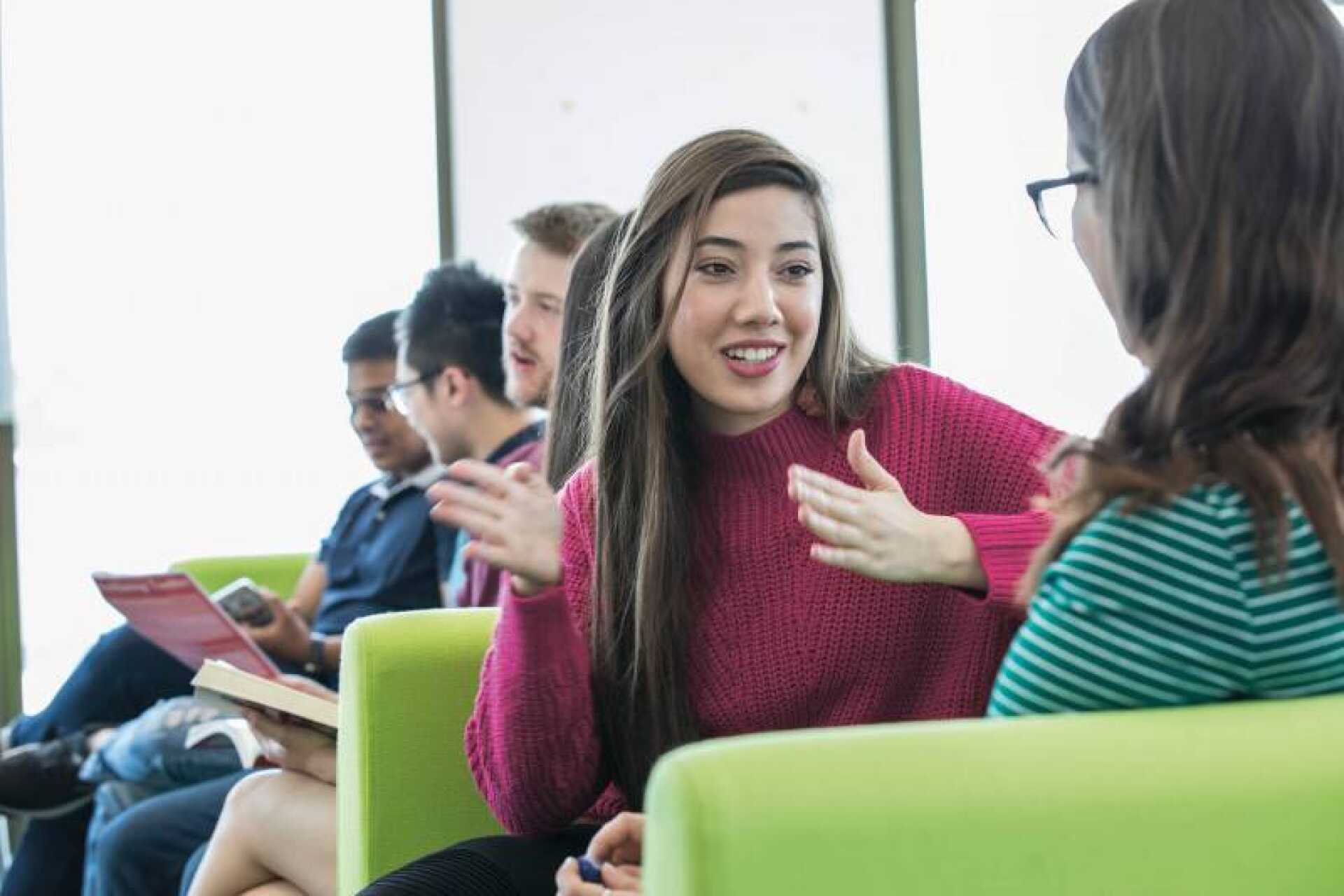
We have a range of subject-specific awards and scholarships for academic, sporting and musical achievement.
We welcome applications from students all around the world with a wide range of international qualifications.
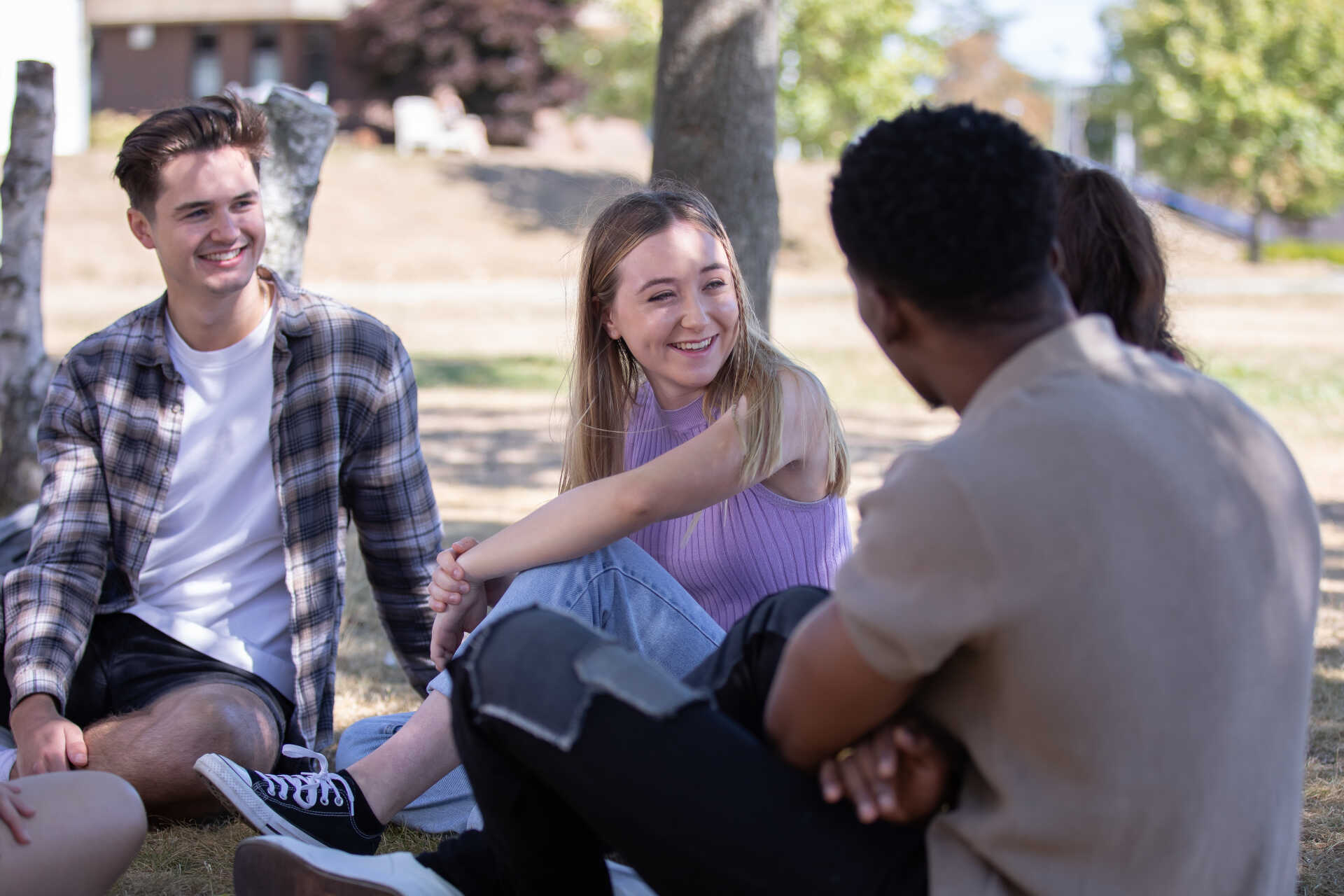
Student Life

Powered by progress
Kent has climbed 12 places to reach the top 40 in The Times Good University Guide 2025.
Kent Sport
Kent has risen 11 places in THE’s REF 2021 ranking, confirming us as a leading research university.

An unmissable part of your student experience.